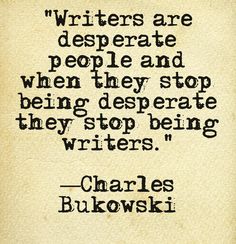The question of whether to hire a freelance editor or not has been posed to me so many times. It is a matter of how much work needs to be done on the manuscript and how much money you wish to invest before you submit to an agency. Or should you submit it to LLA and let them edit and sell your book to a traditional publisher? Ahhh, that may be the answer.
The difference between a writer and an author is publication. The difference between an agent and a freelancer is the agent has a vested interest (long-term) in the author and their work(s). Freelancers get the money and run! No matter what kind of quality job was done, they are done. LLA is not just a literary agency. On top of submitting your work(s), negotiating a publishing contract, helping authors and publishing houses reach an agreement on editing or cover issues, and providing mentoring for an author, LLA agents “shepherd” every author and manuscript indefinitely—marketing, publicity, moral support, attending book signings and conferences with the author, and personally promoting LLA books.
I have had so many manuscripts submitted to me that were great concepts, but the writing needed major editing. Major is when you cannot get through a sentence without fixing something. This is a sure sign the writer did not proof or polish, much less had anyone with a keen eye for English grammar or literature proof it for them. After working on a manuscript for years, you tend to have an anxiety attack at the thought of having to read it again or rewrite. Works have been known to sit in desk drawers for forty years due to this, or fear of rejection.
If truly interested in having your ‘baby’ published, you have to make sure it is ready for Pre-K first. Yes, there are many steps to becoming an author. When good enough, it has to be submitted to an agency to be taken seriously. Agents are the ‘gatekeepers’ who vet the manuscripts and make sure they meet all the criteria before taking it on, then submit to publishers on behalf of the writer. Most do not take submissions from authors directly. If they did, what a bottleneck that would be!
There are competent, honest, well-educated, freelance editors, then there are the con artists. Hard to distinguish sometimes, especially when then send you an impressive CV. The proof is in the pudding, though. I have only a handful I recommend because they have proven themselves worthy. Others have taken authors for an expensive ride, charging $1200-$5000 to edit a manuscript. Outrageous!
I recently had an author submit a manuscript that needed a good deal of work. I sent him to a freelancer who charged him $2500 to ‘edit’ his manuscript. OMGOSH!! I just finished re-editing it and it took me over a month! It is now ready for submissions. That freelancer will not be taking advantage of anymore LLA authors. You can count on that!
The good ones know what is expected. They read the agency submission guidelines and know what the industry standards are. When I get one they’ve edited, I only have to read and double-check. This expedites the whole process.
So, you send it to LLA, then what? If it is a genre and topic that we take and it is unique, (no other titles or similar topics out there) we put it in queue. It is when we pull it up and actually delve into the content do we see what the writer is capable of; what potential the work has. Will it be fine as is with a bit of tweaking here and there? Is it something that will sell and, hopefully, sell big? Is it worth a month of my time getting it polished? Is the writer worth the time? There are great works and sorry writers, great writers and sorry works, and then there is the ultimate, great writers with great works. Of course, there is always the possibility that you have the latter, and, when you get them acquired by a publisher, then they nut up on you. Oh, boy! They grow an ego and think they no longer need you or that their work is good enough as is. This causes massive issues with the agency and publisher.
Most agency contracts cover this as their contracts are contingent upon the publisher’s contract, which is 2, 3, 5, 10, 15 years, for the copyright of the book, until sales are less than 100 books a year, the publisher cancels contract, or the publisher goes out of business. If the author refuses to do what is required of them, the publisher may or may not cancel, but the one who is the most affected is the author and subsequently the agent, since agencies only get 15% of the net. What is 15% of $0? See? It is a collaborative effort when it comes to a successful book.
The bottom line is this: send it to us first! Let us work with you on making it a marketable manuscript. If it does need extensive work, together we will make it a great book.
